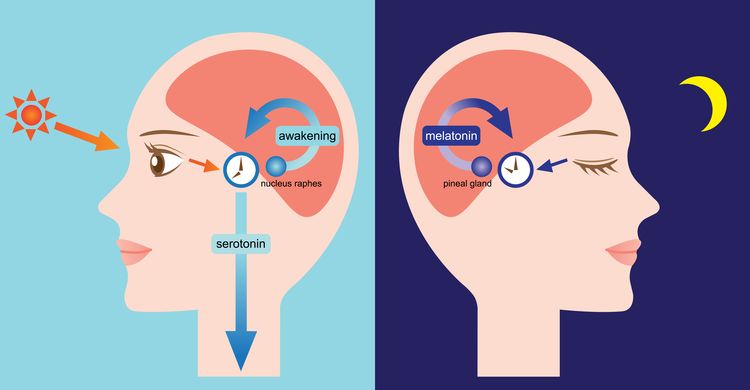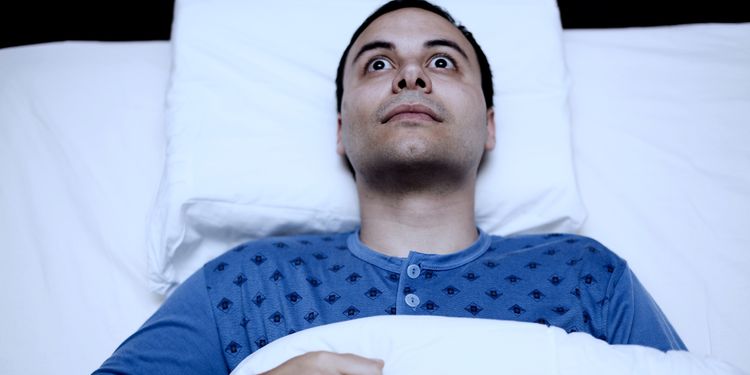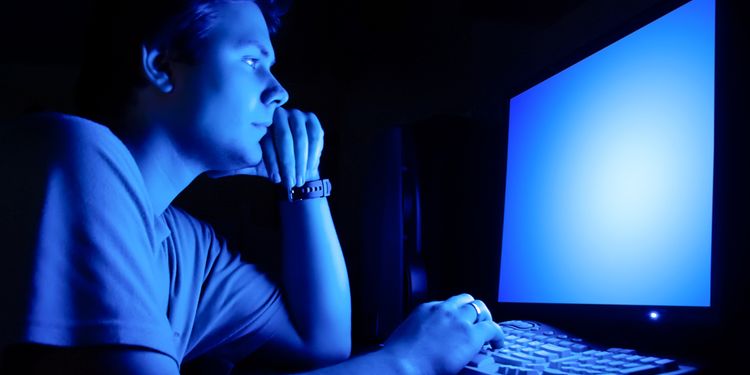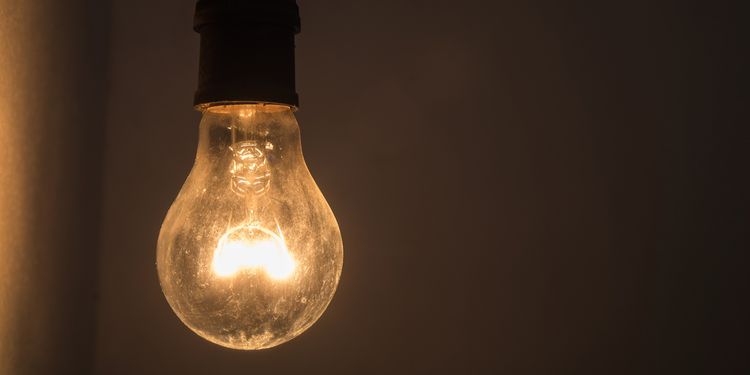How Blue Light is Wrecking Your Health and What to Do About It

“Everything in life is about balance.” You’ve probably heard this timeless piece of wisdom before in reference to things like riding a bike, splitting time between work and family, or picking which foods to eat throughout the day. Well, today we’re adding a new item to the balance list: blue light!
What is blue light, you ask?
“Blue” light is light of a short wavelength range, around 475nm. Blue light is emitted in sunlight and from white lightbulbs and most TV, computer, tablet, and smartphone screens.
During the day, blue light is healthy and a necessary signal to your body that it’s time to be awake and alert. At night, however, when the sun is down and your body would like to start winding down for rest and recovery, excessive blue light is anything but healthy.
Blue light plays a pivotal role in your health, and there’s a good chance your modern lifestyle is impeding that role.
Let’s take a look at why.

Blue Light Suppresses Regulates Melatonin
The reason blue light is so important to our health is because blue light is the main driver of melatonin production.
It works like this:
Most of your physical, biochemical, and even behavioral processes run in cycles known as circadian rhythms. Your body’s circadian rhythms are guided by the input of external factors like meal times, surrounding temperature, and light exposure.
Of all the external factors that influence our circadian rhythms, our cycle is most affected by light. This is because the production and secretion of melatonin, our main sleep hormone, rises and falls depending on light exposure— specifically, the short-wave blue light emitted by the sun and electronics.

So when the sun goes down and it gets dark outside, the absence of blue light signals to our bodies to ramp up production of melatonin. This makes us sleepy and prepares us for rest and recovery. When the sun comes up and we’re exposed to blue light, our bodies take this as a signal to cut back on melatonin production so that we’re awake and alert for the day.
For millions of years, the only source of blue light in our lives was the sun. This was a constant, immutable fact of nature— a stable pillar around which our bodies could revolve their cycles. Consequently, things became clear-cut for our bodies: blue light exposure means it’s day time, which means it’s time to cut back on melatonin. No blue light means it’s night, and thus time to ramp up production of melatonin in preparation for sleep.
(It’s worth noting here that the orange/yellow light of fire does not affect melatonin levels.)
Nowadays, however, the sun is no longer the only source of blue light. Electronics now share that esteemed role, and our bodies have not yet caught up with this fact. This is where our bodies get confused. And when our bodies are confused, the health problems come soon after.

How Blue Light Affects Your Sleep
Most of you know by now that getting enough quality sleep is absolutely essential to your overall health and well-being. Sadly, up to 63% of Americans report they’re not getting enough sleep during the week.
Sleep deprivation has become a quiet epidemic in America, and it’s slowly killing us. Long-term sleep deprivation has been linked to higher risk of skin/breast cancer, metabolic syndrome, depression, obesity, heart disease, and Type 2 diabetes.
One of the best steps you can take to improve your quality and quantity of sleep is to give your body the natural light cycle it evolved to rely on.
During tribal times when we lived outdoors, our exposure to blue light was between 5000 and 130,000 lux (units of luminance) during the day (depending on cloud cover, geographic location, etc.) and 0.0001 to 0.3 lux during the night (depending on clouds, location, and the moon cycle).
Our bodies— and our sleep cycles especially— thrive on this natural cycle of high blue light exposure during the day and extremely low blue light exposure at night. These days, most of us miss both ends of the spectrum!
On the one hand, we don’t get enough blue light during the day, because we live most of our lives indoors in a perpetual “twilight zone” of 50 to 500 lux (depending on the lighting system being used).

On the other hand, by using interior lighting and keeping our eyes glued to various electronic screens at night, we unnaturally expose ourselves to blue light long after the sun has set. This forces our brain and body into overdrive, suppressing melatonin production when we need exactly the opposite.
What’s more, we keep this up until right before bed and then wonder why we can’t fall asleep. Our bodies crave not only the high lux contrast of the natural light cycle, but the gradual come-down the sunset provides as well.
Not enough blue light during the day and too much at night throws our melatonin production cycles into complete disarray.
Short term, this can lead to sluggish days and sleepless nights. And as we covered above, over the long term, chronic melatonin disruption and sleep deprivation can have severely negative health effects.

How to Prevent Melatonin Suppression Without Ditching Your Electronics
So, besides simply tossing all of our electronics and living like our tribal ancestors (sleeping with the sunset and rising with the sunrise), how do we address this blue light issue?
Thankfully, there are plenty of ways to reduce how badly blue light disrupts our melatonin production without reverting back to the Stone Age.
Here are some you can try tonight:
- Dim the brightness on your screens as much as possible at night.
- Add blue light blocking screens to tablets, computers, and TVs.
- Use amber/yellow light bulbs at night. These won’t affect melatonin production.
- Wear blue light blocking glasses at night. These glasses have yellow-tinted lenses that block much or all of the blue light from both screens and interior lighting. Dr. Frank Lipman recommends the brands Uvex and Ray-Ban, and Dr. Chris Kresser recommends Solar Shield.
- Use candles! They’re not only easy on your eyes and don’t affect melatonin production, they are potentially romantic and delicious-smelling as well. If you’d rather avoid the fire hazard, you can use battery-powered flameless “candles” instead.
- Install f.lux or EasyEyez on your computers and/or smart devices. These apps change your device’s light “temperature,” lowering the blue light emission or cutting it out entirely when the sun goes down. F.lux is particularly useful, because it automatically raises or lowers the blue light emissions based on your geographical location.
- Go to sleep earlier! Using lights and devices before bedtime will disturb your circadian rhythms less if your bedtime is closer to sunset.
- Keep your bedroom as dark as possible when you sleep, preferably pitch black.
- Finally, don’t forget to expose yourself to plenty of blue light during the day to normalize your body’s melatonin production cycle. Use blue light enhanced lightbulbs in your home and at work during the day— or, you know, get outside and get some sun!

Summary
Spending most of your time indoors during the day robs you of the high blue light exposure your body craves. And even minor exposure to blue light at night can dramatically disrupt your body’s melatonin production.
Texting a friend or watching your favorite late-night host right before bed may feel harmless. But over the long term, it can severely upset your melatonin production cycles and your sleep patterns.
And you should all know by now how important sleep is to your overall mental, emotional, and physical health!
So do what you can to help your body normalize its circadian rhythms. Get outside during the day, and once the sun goes down, light some candles, install some apps, wear some dorky glasses— whatever works for you!
